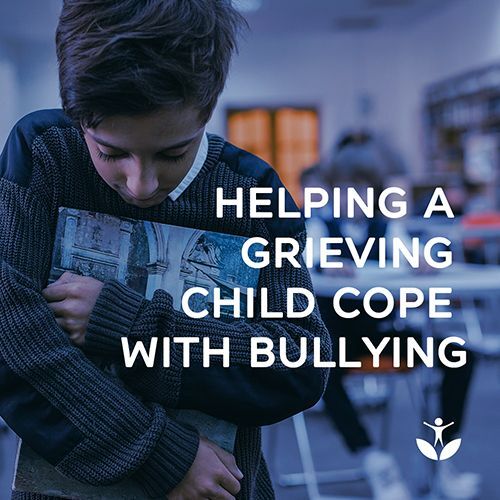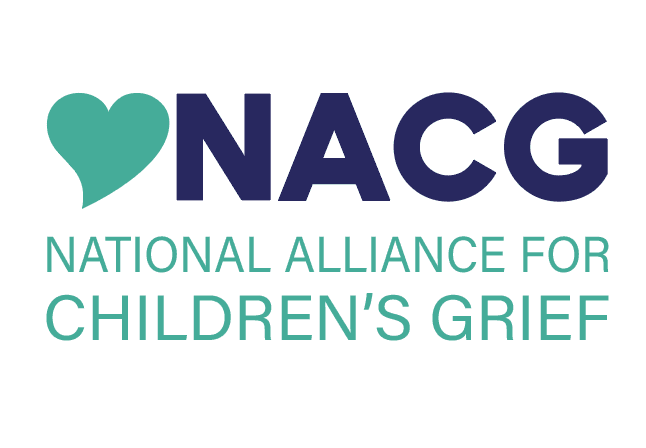
It is estimated that over 600,000 children missed one or more days of school due to fear of bullying or intimidation by other students (CDC, 2015). As a result, bullying has been a widespread issue in schools and can particularly impact a grieving child. When a child is grieving, they are more vulnerable to bullying as they may display emotional and behavioral changes at school when processing their losses. For example, a child may get teased because they cry in school when they miss their loved one who died. Other grief-related emotional and behavioral changes, such as feeling anxious, irritable, frightened, or numb and withdrawing from school and social activities, can make one more susceptible to being bullied. Sadly, going through the grieving process may make children more susceptible to becoming a target of bullying. Parents and adults can provide practical and emotional support to a grieving child by recognizing signs of bullying.
Signs that a child might be bullied:
Stopbullying.gov, is a federal government website managed by the U.S. Department of Health and Human Services, that has some warning signs that a child may experience bullying:
● Acting nervous or tense before school
● Appearing to be suffering unusual fatigue from stress
● Unexplainable injuries
● Lost or destroyed clothing, books, electronics, or jewelry
● Difficulty concentrating in school or completing homework
● Declining grades
● Displaying unusual sadness, anger, helplessness, or decreased self-esteem
● Change in eating and sleeping patterns, e.g., skipping meals or having nightmares
● Self-sabotaging behavior such as running away from school or home, harming themselves, and suicide ideation or attempts
● Avoidance of social interactions
Ways to support a child being bullied:
Providing a non-judgmental space
When children are being bullied, they may feel humiliated, rejected, and helpless. Adult involvement often helps mitigate bullying. However, people sometimes blame the victim of bullying, such as telling them that they did not stand up for themselves or an adult might focus on the characteristics that make the victim different. This attitude will make it more difficult for children to ask for support when they already feel self-conscious and socially isolated. It is crucial for adults to create a non-judgmental space and show that they care and are willing to understand so that children can feel safe to reach out when they need support.
Acknowledging emotions and clearing the myth
Many children may wonder what they did to deserve to be bullied; some may feel they have identified a reason, while others spend years attempting to figure out why they were a victim. Being bullied during a time of grief can trigger compound emotions that children may have already been handling due to the loss. For example, a child may wonder why their loved one died or whether they have caused the death. The continuous wondering of "why" can become an ambiguous loss that complicates the grief experience. Being bullied at such a sensitive time could reinforce this ambiguous loss and complicate the grief process. As adults, it is crucial to acknowledge that the pain children feel is real, and that it is not their fault for being bullied.
There is no answer to the myth of "why." Students are bullied because some peers choose to do so or because adults and bystanders do not intervene appropriately. If a child gets teased for crying, adults need to help them realize that there is nothing wrong with crying, and that they do not need to feel ashamed for having emotions. Additionally, caregivers can practice responses with the child on how to respond to a bully using calm language or when necessary, how to safely remove themselves from the situation. Once children understand this truth and have ways to respond when someone is mean, they will feel much more empowered to cope with bullying.
Intervene more and identify allies
The attitudes of parents, teachers, and staff members have a profound impact on students. In a national survey conducted by the National Institute of Health with middle schoolers, 71% of students reported that teachers or other adults in the classroom ignored bullying incidents. When asked, students uniformly expressed the desire that adults intervene rather than ignore teasing and bullying. When adults respond quickly and consistently to bullying behavior, they send the message that it is not acceptable. Research shows this can stop bullying behavior over time.
Aside from intervening as a caregiver, it is important to examine the dynamics around children to advocate for them and help them identify trusting adults they can turn to for help. Teachers, staff, and other adults in a child's life should be monitoring a child who has experienced loss to make sure they are adjusting well in a school setting afterward. This also should include monitoring for potential bullying, both verbal and physical.
Model emotion regulation
It is normal for parents and caregivers to feel angry and protective when they find out their children are being bullied. Such emotions can be elevated at a time when the family is grieving, and parents are feeling overwhelmed. However, it is essential to practice and model emotion regulation with children by managing your own distress, staying calm, and proceeding with the situation effectively. Caregivers can not only model responses to challenging situations, but also model ways they are processing their grief. This can have a positive impact in showing the child emotional regulation skills that can expand into managing bullying. Avoid acting like you are the target or taking bullying personally. Children need an empathic and supportive adult now more than ever, rather than a fellow victim who makes the problem worse.
Help children establish effective coping strategies
When children experience the compound effects of grief and bullying, they need your guidance to cope effectively with feelings that may seem out of place or context. It is helpful to encourage children to engage in activities that help them feel a greater sense of control and confidence in managing stressors effectively. Such activities include talking about their feelings with a trusted adult, journaling, art, storytelling, etc. Furthermore, it might be helpful to plan and practice with a child response that can be said in a non-confrontational way. For example, if someone picks on them regarding the loss, teach them to calmly say, "Stop. You are so lucky you didn’t lose someone you care about. It's really hard." The key is not to get upset. Walking away, saying "Stop," keeping cool, using humor, and ignoring those who bully -- these are all appropriate responses you can practice with a child. Hence, the person who bullies gets no power from these responses, and the person being bullied becomes more resilient.
Finding Support after a Loss
If you or someone you know has experienced the death of a loved one, Children’s Bereavement Center offers FREE grief support groups for children, teens, young adults, and adults across South Florida and nationwide. To register for our CBC groups year-round, please contact 888-988-5438 or support@childbereavement.org, or find more information and resources at www.childbereavement.org.










